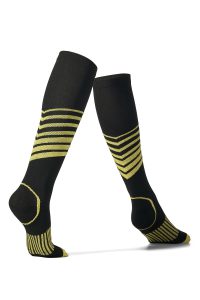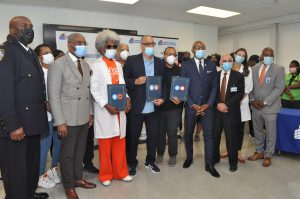This month we are proud to shine our Employee Spotlight on Keila Tapia.
Keila has been with Jamaica Hospital Medical Center for eight years and is an administrative assistant in the Security Department. She grew up in the East New York section of Brooklyn and currently lives in Queens.
Keila attended P.S. 214, John Adams High School, received her bachelor’s degree in business administration from Medgar Evers College in 2010 and currently is studying for her master’s degree in health administration at Capella University.
Family and friends are the most important part of her life. Keila enjoys spending time with them in her free time. She also likes to go to concerts, spend time outdoors, watch baseball games and go out to eat. Her favorite types of food are Mexican and Italian. Keila enjoys many genres of entertainment; however, her favorite type of movie are horror movies and she likes to listen to Latin and R & B music.
When she has the opportunity Keila likes to travel to places that have warm climates and beautiful beaches. Some of the places she has been to are Puerto Rico, St. Maarten, and the Dominican Republic where she spends time with her loved ones.
Keila enjoys working at Jamaica Hospital because it provides opportunities to keep growing within the organization and also because people work together so well as a team. We look forward to having Keila continue with us for many more years.
All content of this newsletter is intended for general information purposes only and is not intended or implied to be a substitute for professional medical advice, diagnosis or treatment. Please consult a medical professional before adopting any of the suggestions on this page. You must never disregard professional medical advice or delay seeking medical treatment based upon any content of this newsletter. PROMPTLY CONSULT YOUR PHYSICIAN OR CALL 911 IF YOU BELIEVE YOU HAVE A MEDICAL EMERGENCY.





